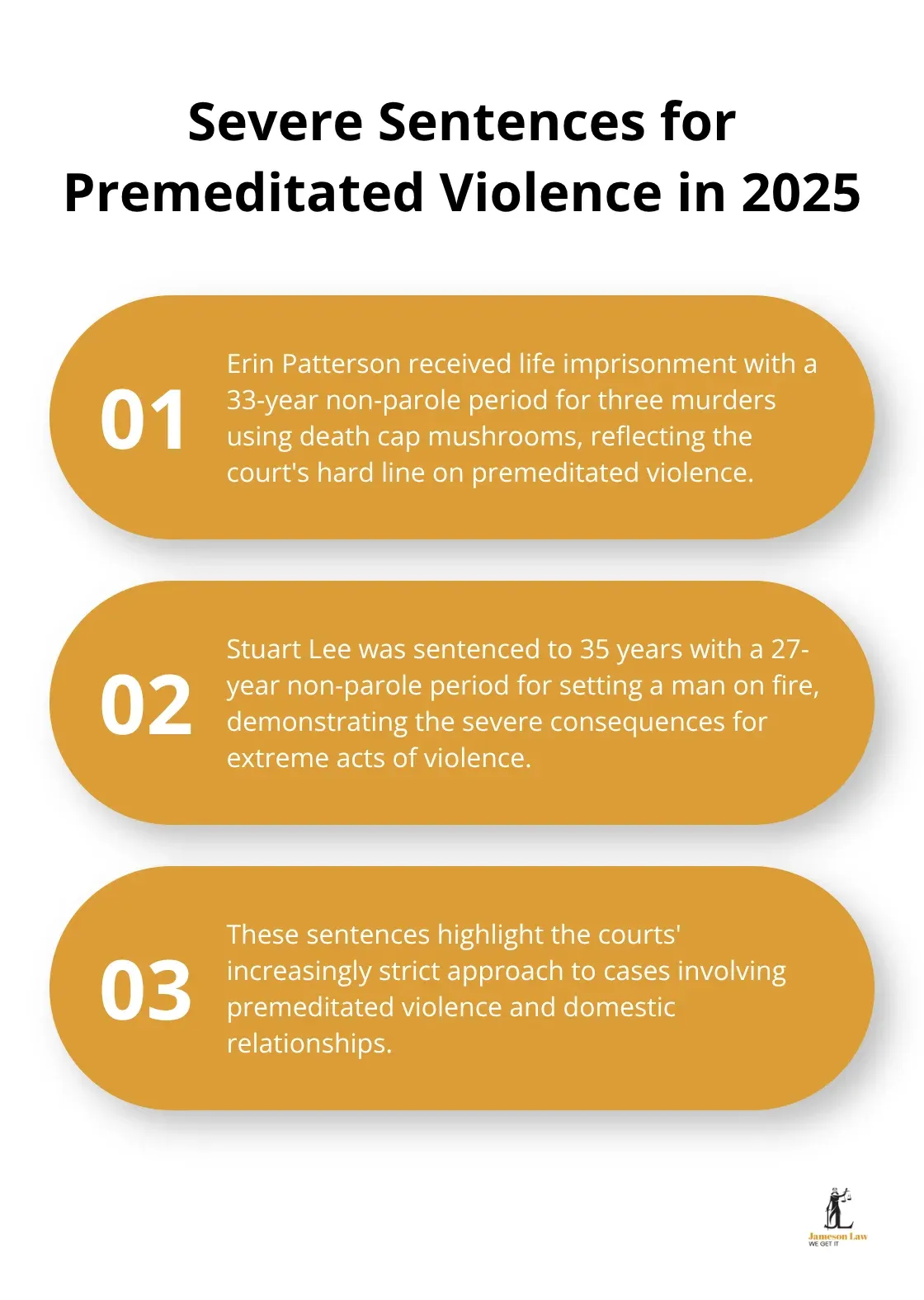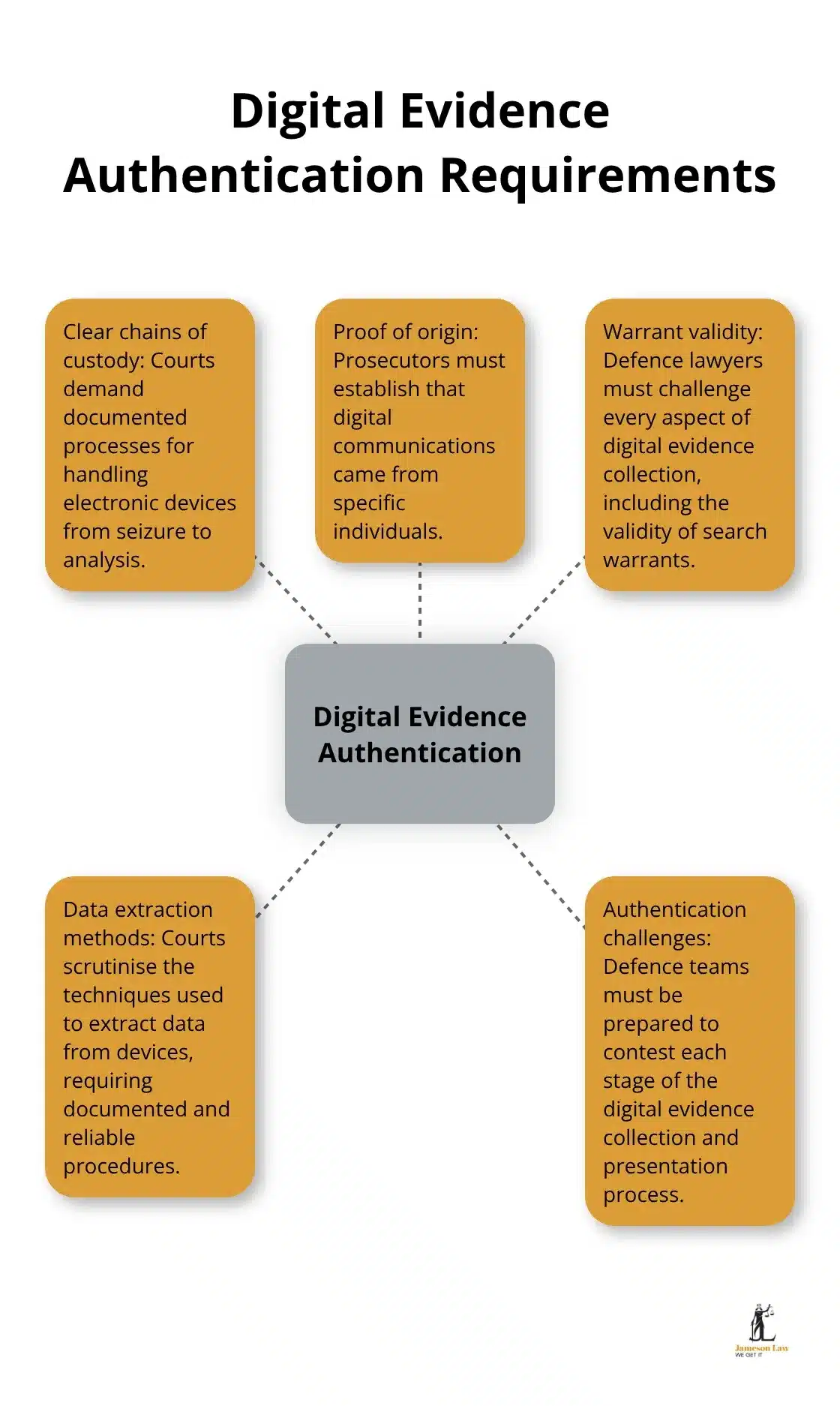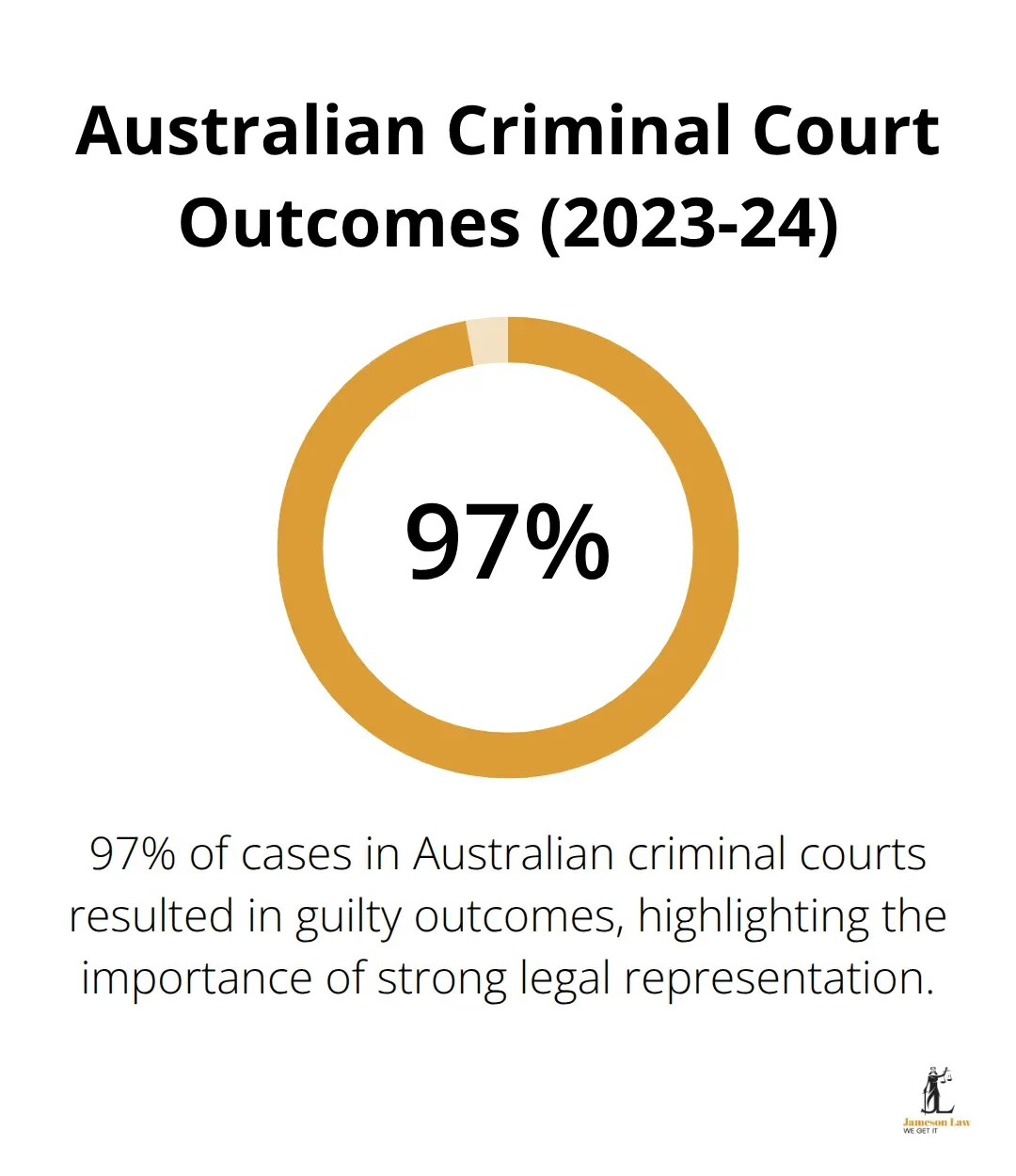Recent criminal law cases in NSW and around Australia are reshaping how courts handle evidence, sentencing and defence strategy. These developments flow into day-to-day practice in Sydney courts and directly affect anyone facing charges.
We at Jameson Law track these changes closely because they influence everything from trial preparation to bail applications and plea negotiations.
What NSW criminal cases and trends are shifting the landscape in 2025
High-profile Victorian decisions in late 2025 are not binding on NSW, yet they illustrate a nationwide judicial mood that informs sentencing submissions and media scrutiny. For example, Erin Patterson was sentenced to life imprisonment with a 33-year non-parole period after a Supreme Court of Victoria jury convicted her of three murders linked to death cap mushrooms, and the court confirmed sentence in late September 2025. The Court’s recent sentences list records similar severity in violent offending, including the Stuart Lee matter involving a fatal immolation where the court imposed lengthy head terms and non-parole periods (see the Supreme Court of Victoria case summaries).
Corporate accountability is also under a brighter spotlight. In Nordic Elevators, the Supreme Court of Victoria recorded $300,000 in fines following a fatality, with the judgment published as VSC T0379 (17 Sep 2025). While that is a Victorian prosecution, NSW prosecutors and courts similarly emphasise WHS Act duties and personal liability for officers.
Domestic and family violence sentencing remains a priority across jurisdictions, with severe terms for lethal and high-risk offending highlighted in the Victorian summaries above. In NSW, comparable seriousness is reflected in sentencing remarks published on NSW Caselaw and monitored by the Judicial Commission of NSW.

Technology evidence standards are tighter
Across Australia, courts expect rigorous authentication for phone dumps, social media and cloud data. In NSW, admissibility still turns on the Evidence Act 1995 (NSW) and judge-made principles, with practical guidance in the Judicial Commission’s Criminal Trial Bench Book. Police now also rely on new Digital Evidence Access Orders (LEPRA s 76AJ), which defence can test for scope, chain of custody and forensic method.
How these developments change defence strategy in NSW
Evidence authentication requires a forensic approach
Defence teams in Sydney should probe warrants, device handling and extraction tools at a technical level, then apply exclusionary rules under the Evidence Act 1995 (NSW) s 138. Bench Book guidance on digital evidence and electronic intercept material is often cited in submissions. Our team regularly prepares targeted notices for the Crown to particularise metadata provenance and user attribution on messaging apps.
Self-defence and family-violence contexts
Courts are asking for objective foundations for belief and proportionality. Expert material on family-violence dynamics can be critical. We match this with NSW authorities from the NSW Court of Criminal Appeal and, where helpful, persuasive interstate guidance.
Corporate and WHS prosecutions
For officer-liability matters, early governance audits and documented due diligence help. NSW prosecutors and courts expect evidence of practical WHS systems, see the framework under the Work Health and Safety Act 2011 (NSW). We prepare briefings that align with sentencing factors used in recent superior court decisions while noting that NSW Supreme Court and local practice apply NSW law.

Why prompt legal advice changes outcomes
Across Australia most court judgements end in guilty outcomes. The Australian Bureau of Statistics reports 97 percent of finalised judgements resulted in defendants proven guilty in 2023–24. In Commonwealth prosecutions specifically, the CDPP notes a very high resolved-by-guilty-plea rate in its latest reporting (see 2023–24 caseload). Early intervention helps you avoid missteps in interview, secure workable bail and press evidentiary objections before a brief hardens.
If you have a matter listed in the NSW Court of Criminal Appeal or the District or Supreme Court, our criminal defence team can map a strategy from first mention through to sentence, including targeted negotiations that reflect current sentencing patterns.

Practical next steps
- Do not comment to police before advice. Your right to silence is protected. See Legal Aid NSW guidance on police powers and rights.
- If devices are seized, note who handled them and when. LEPRA s 76AJ and related provisions make chain-of-custody and warrant scope live issues.
- Keep across court listing and statistics. BOCSAR and Data NSW publish court statistics that inform realistic timelines.
- For corporate matters, document WHS systems and officer due diligence now. SafeWork NSW maintains current WHS law resources.
How we can help
Jameson Law acts in complex criminal matters across Sydney and NSW. Start with a confidential chat so we can assess charges, evidence and options. Explore our guides on what happens in criminal matters, assault charges in Sydney and recklessness in criminal law, then contact us or call (02) 8806 0866 for tailored advice.













